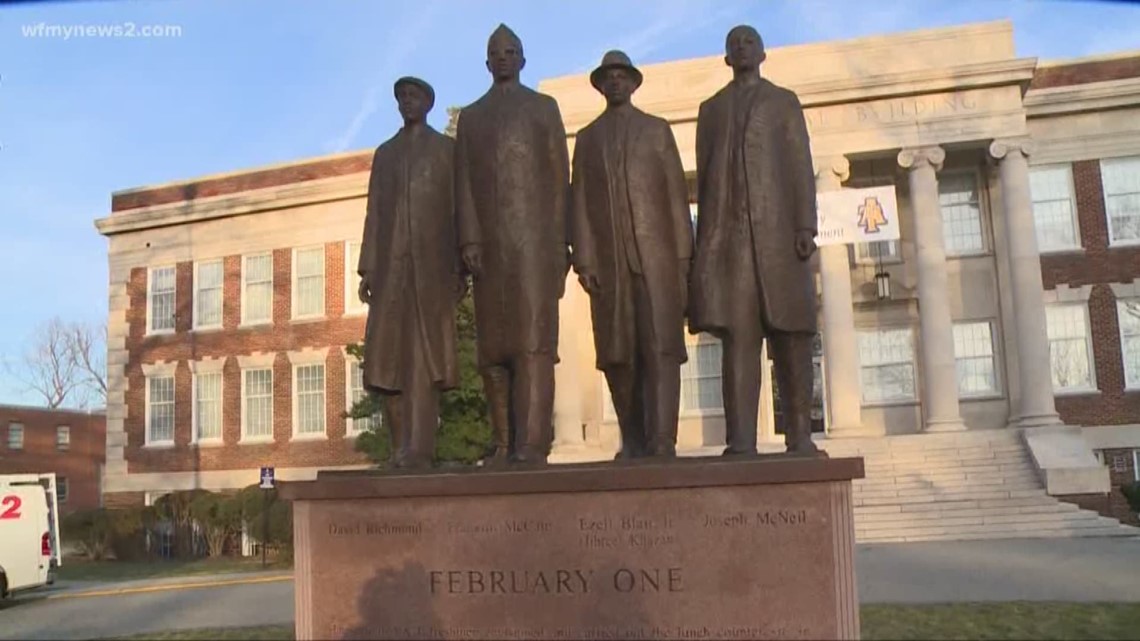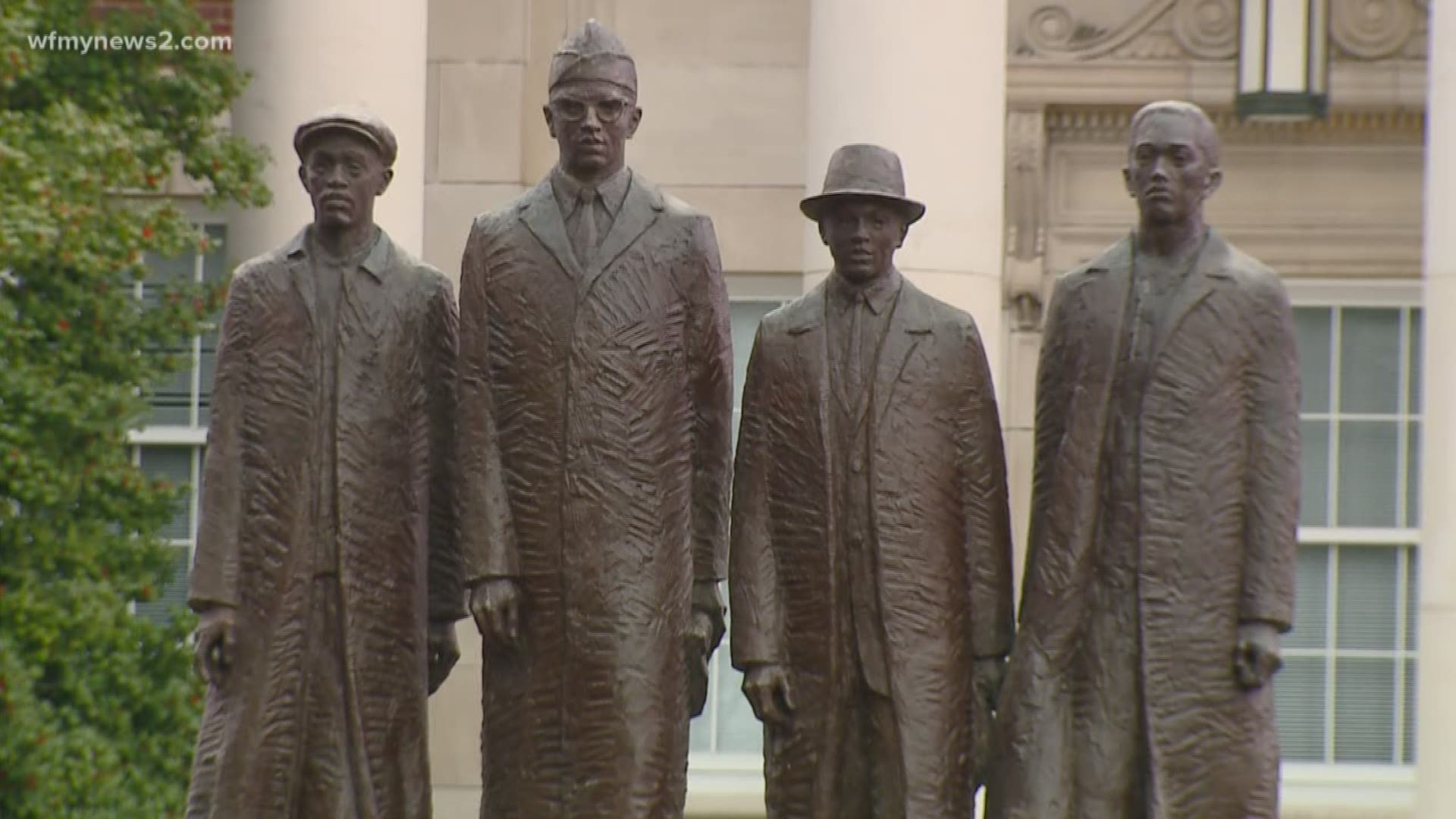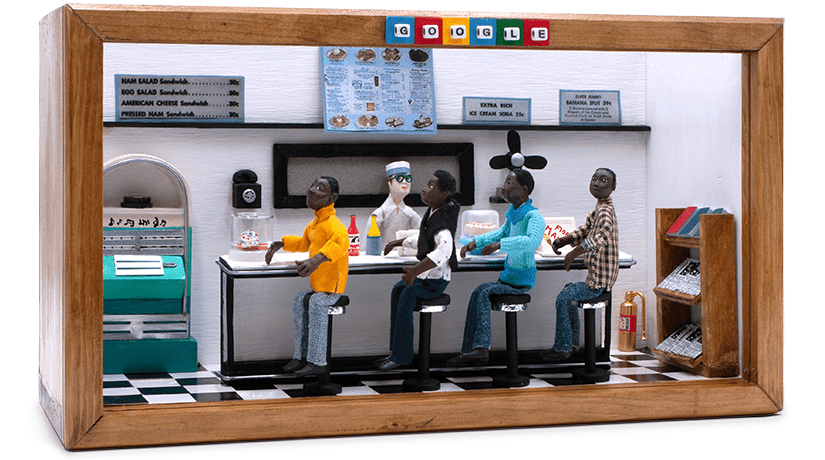GREENSBORO, N.C. — In honor of Black history month, Google is celebrating with a special Google doodle! That doodle is of Jibreel Khazan (formerly Ezell Blair Jr.), Franklin McCain, Joseph McNeil, and David Richmond better known as the “Greensboro Four”
On February 1, 1960, "The Greensboro Four" protested racial segregation with a sit-in movement at Woolworth’s lunch counter located in downtown Greensboro, NC.
The four North Carolina A&T students sat at the "white-only" lunch counter and refused to leave when they were denied service. Although these Four young men were denied service, they sat at that counter until the store closed.
These protests lasted for several months, until Woolworth's was finally desegregated in July 1960. These actions led to a sit-in movement across the South, and forced dining facilities across the region to integrate by the summer of 1960.
On Friday, a commemorative program was held to honor the Greensboro Four, and to celebrate the 60th anniversary of the Woolworth sit-in. The program was held on the campus of North Carolina A&T State University and Roland Martin served as the guest speaker.
Chronology of the Sit–In: Events that occurred as a result of this bold action by these four young men included:
- February 2nd, 1960 — twenty–five other students from A&T and other Greensboro colleges and universities joined them.
- During the next 10 days, students across the state participated in similar sit-ins.
- By the third week of February 1960, demonstrations had spread to at least 250 major cities and towns in the U.S. in which over 400 demonstrations took place by the end of 1960.
- Woolworth's was desegregated by the end of July 1960.
Legacy: As a result of this movement, significant events in civil rights history occurred:
- The passage of the 1960 Civil Rights Bill.
- The Interstate Commerce Commission ruling in September 1961 against racial segregation on interstate carriers and terminals.
- The first National Public Accommodations Act in 100 years (Khazan 2004).
- The legacy of these four heroes proves the true potential and appeal of nonviolence. It was their protest that became the model and inspiration for later civil rights, anti-war and women's liberations movements. These four young men forever changed the course of history by their bravery and courage.




Other stories:


